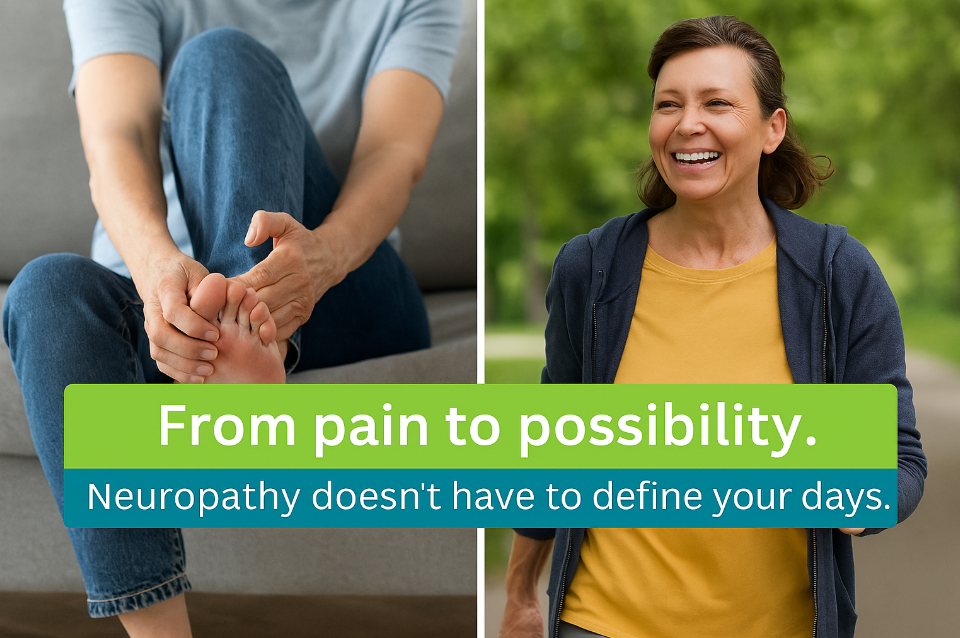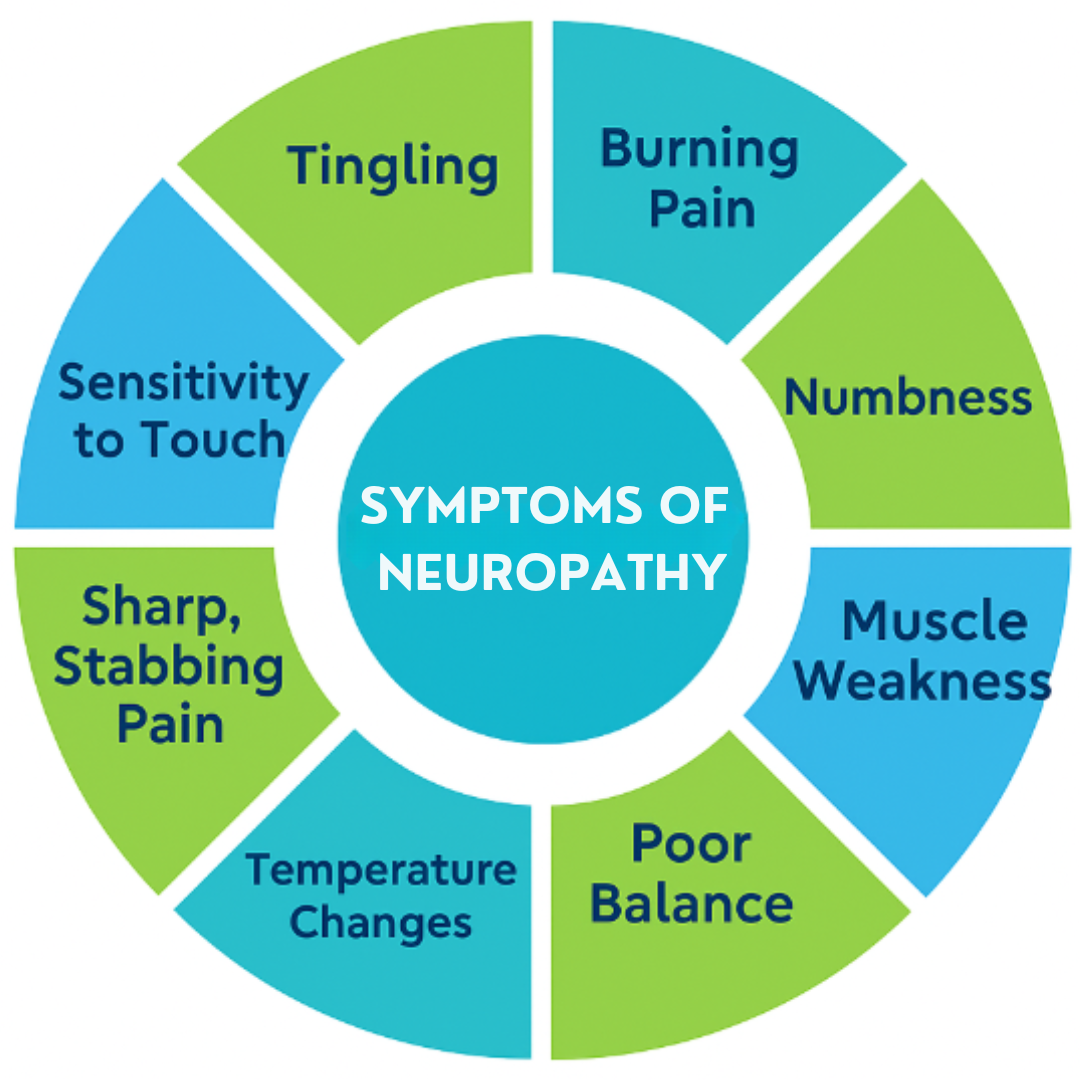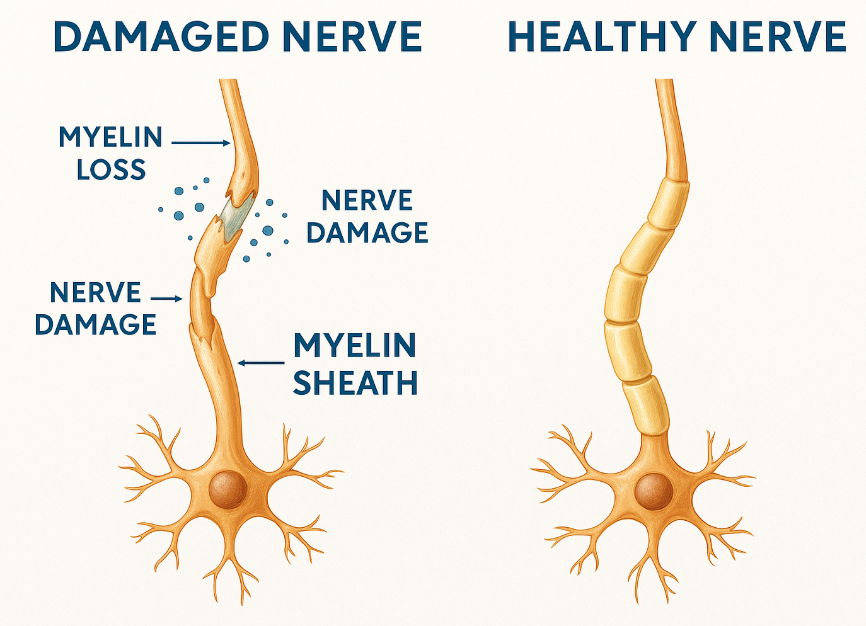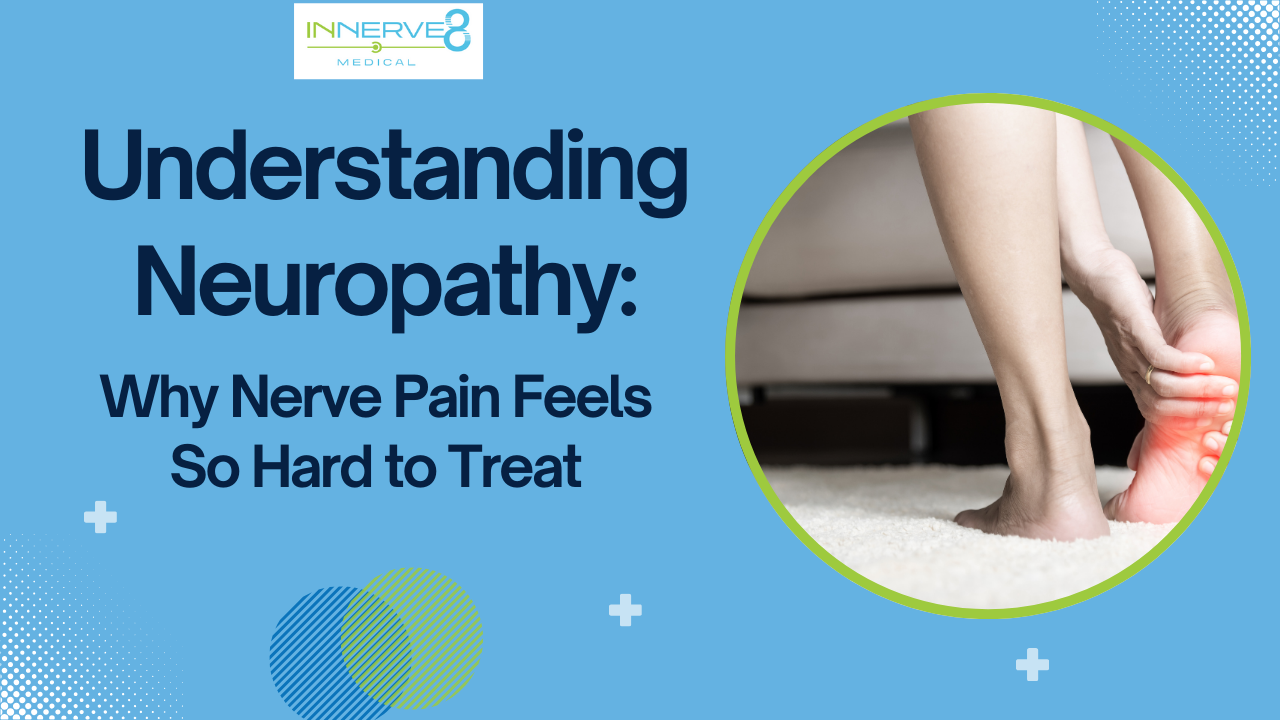 When Your Nerves Stop Playing Nice
When Your Nerves Stop Playing Nice
There’s a unique kind of discomfort that comes with nerve pain. It might start as a tingling in your toes or a strange numbness in your fingers. Sometimes it’s a burning sensation that seems to move without logic, or a deep ache in your feet that’s worse at night. Other times, it’s just the absence of sensation — like your body is disconnected from your brain.
That’s neuropathy — a condition that affects the nerves responsible for how you feel, move, and respond. And for many people, it’s a frustrating and life-altering experience.
At Innerve8 Medical, we believe in addressing what’s beneath the surface of neuropathy — not just masking symptoms, but helping the nerves and surrounding systems heal and function better.
 So What Is Neuropathy, Really?
So What Is Neuropathy, Really?
Neuropathy — short for peripheral neuropathy — refers to damage or dysfunction of the nerves outside the brain and spinal cord. These peripheral nerves are like messengers, carrying signals between your brain and your body. When they become damaged or inflamed, those signals can get crossed, dulled, or amplified into pain.
There are three types of nerves commonly affected:
- Sensory nerves: control sensation (pain, temperature, touch)
- Motor nerves: control muscle movement
- Autonomic nerves: control automatic functions (like heart rate, digestion, and sweating)
Neuropathy can affect one or all of these, which is why symptoms vary so much from person to person.
 What Causes Neuropathy?
What Causes Neuropathy?
Neuropathy isn’t a condition in itself — it’s a result of something else that’s damaging the nerves. Common causes include:
- Diabetes – one of the most common sources of chronic nerve damage
- Nutritional deficiencies – especially B vitamins
- Autoimmune disorders – like lupus or rheumatoid arthritis
- Infections – shingles, Lyme disease, and others
- Physical trauma or repetitive stress – from injuries or long-term pressure
- Chemotherapy or other drugs – nerve toxicity as a side effect
- Unknown causes – in many cases, no clear trigger is found
What they all have in common is chronic inflammation or impaired circulation, which can starve nerves of the nutrients and oxygen they need to function.
Why Is Neuropathy So Hard to Treat?
One of the most frustrating things about neuropathy is how painful and stubborn it can be to treat.
Nerves don’t heal quickly. Unlike muscles or skin, which bounce back relatively fast, nerves regenerate slowly — if at all. And if the underlying cause isn’t addressed, simply taking medications to “numb the pain” can delay real healing.
Many treatments focus only on symptoms — prescribing drugs to dull nerve signals — rather than improving nerve health, blood flow, or inflammation. The result? Temporary relief that fades quickly, and pain that continues to creep back.
A Different Approach: Support the System, Not Just the Symptoms
If you’ve been living with neuropathy, you may have already tried the usual path — medications, creams, maybe even a referral or two — and still felt like no one was really getting to the root of what’s going on.
That’s because neuropathy isn’t just a nerve problem. It’s a systemic signal that your body is out of balance — inflamed, damaged, or misfiring — and it needs support, not silence.
At Innerve8 Medical, we take a more thoughtful approach. We focus on helping your body repair, regulate, and reconnect — step by step. Here's how:
- We use advanced acoustic wave technology to stimulate blood flow and healing and encourage nerve regeneration.
- We calm irritated nerves with targeted injections and regenerative treatments.
- We improve blood flow and nutrient delivery, so your nerves aren’t running on empty.
- We support your whole system with physical rehabilitation and chiropractic care to correct strain patterns.
- And we look at the bigger picture — like nutritional deficiencies, blood sugar issues, or chronic stress that may be feeding the cycle.
This isn’t a one-size-fits-all fix. It’s a whole-body, whole-person strategy. And for many people, it’s the first time they’ve felt like someone’s connecting the dots — not just checking boxes.
What Does Real Healing Look Like?
When you walk through our doors, we don’t just see symptoms — we see a story. And that story deserves to be heard.
Your provider will take time to learn what you've been through and what you're feeling now. We’ll look closely at your history, your body’s patterns, and your goals. From there, we build a care plan that’s just for you.
And as your body begins to respond, we track your progress together — watching for signs of sensation returning, discomfort fading, and confidence rebuilding.
You’re not doing this alone. We’ll walk beside you — adjusting, encouraging, and celebrating every step forward.
When You’re Ready, We’re Here to Help
If you’ve been told that you just have to “live with it” — you don’t.
If medications leave you foggy but still in pain — there’s another way. If your feet feel foreign or your hands keep betraying you — there’s hope.
At Innerve8 Medical, we believe your body is capable of more than just surviving. With the right care and support, your nerves can calm, your function can return, and your life can feel like your own again.
📞 Call us at (703) 739-0500
🌐 Visit innerve8medical.com
🖥️ Or use our secure online appointment form to schedule your consultation

